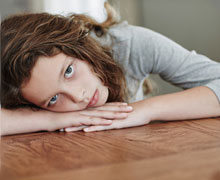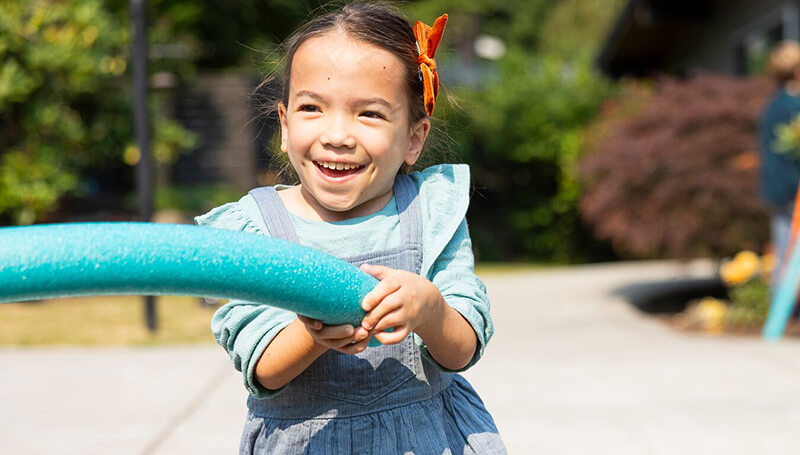Mental Health and Your Child or Teen: What to Watch for and How to Help
You can download this article as a PDF (English) (Spanish).
What is mental health?
 Your child’s overall health includes both their physical and their mental health. Physical health includes things like how well a child grows, how strong they are and how well they can recover from an infection. Mental health includes how well a child thinks, copes with feelings and behaves. A mental health disorder in childhood involves delays or disruptions in thinking, behaviors, social skills, or regulation of emotions for a child of that age. These delays or disruptions cause distress to children or interfere with how well they function at home, school or in social situations.
Your child’s overall health includes both their physical and their mental health. Physical health includes things like how well a child grows, how strong they are and how well they can recover from an infection. Mental health includes how well a child thinks, copes with feelings and behaves. A mental health disorder in childhood involves delays or disruptions in thinking, behaviors, social skills, or regulation of emotions for a child of that age. These delays or disruptions cause distress to children or interfere with how well they function at home, school or in social situations.
Just like your child’s physical health, your child’s mental health changes over time, getting better or worse. We can help our children build habits that help them be mentally healthy, in the same way that we teach them habits such as brushing their teeth, eating nutritious food and getting proper exercise to help them be physically healthy.
Mental health problems are common in children and teens. It is best to notice a problem early on and get the right treatment to support your child, just as you would for a broken bone. The tricky thing is that kids and teens are growing and changing all of the time. It can be hard to tell the difference between mood and behavior changes that commonly happen as children age and ones that are a sign of anxiety, depression or other mental health concerns.
Ways to Support Your Child or Teen’s Mental Wellness
Parents can do a lot to help kids be mentally healthy and well:
- Check in with your child or teen. Ask how they’re feeling and how things are going in their life. Listen to their words, and also pay attention to any changes in their behavior.
- Listen more than you talk, and truly hear what your child is saying. Be aware that your child may not want to problem-solve, they may just want to be heard and accepted. Be curious.
- Encourage your child to keep talking. Validate their feelings by saying things like: “Tell me more.” “I hear you.” “I understand you feel left out.”
- Encourage your child to learn about and label their emotions, and to accept all emotions.
- Ask your child to come up with ideas for how to cope when they start to feel scared, mad, sad or otherwise upset. Talk with your child about their concerns. Let them take the lead, as they learn coping skills that work for them.
Your child is likely to pick up on your healthy and unhealthy habits, so try to start adding more healthy habits to your family’s daily routine. These include getting enough sleep and exercise, choosing healthy foods and drinks, and reducing and managing stress. These habits are important for physical and mental health. Ask your doctor for support if you need help creating healthier habits and enlist your whole family to make small changes together.
Here are some examples of other things that might boost your family’s mental wellness:
- Build a strong and positive parent-child relationship. Respond to your child’s emotional and physical needs.
- Establish a weekly family time to share an activity, like game night or cooking a meal together.
- Make time for child-directed play, one-to-one play in which your child leads.
- Decrease stress and conflict while still supporting normal activities.
- Establish daily routines that support healthy habits to help children and teens know what to expect and depend on. Include regular sleep and wake times, family meals, and clear responsibilities and consequences as part of your family’s way of life.
- Work on your own coping and wellbeing so that you are a powerful role model for your child; you can even talk through how you handle big emotions in healthy ways as they happen.
- Limit time with screens.
- Get outside; spend time in nature.
- Get creative with art time (music, drawing, writing in a journal).
- Reflect on what you’re thankful for.
- Learn a new hobby or build more mastery in a hobby you already have.
- Build friendships, connections and community supports for your child and your family.
Signs of a Mental Health Problem
Mental health problems affect thinking, emotions and behavior. Parents, teachers, coaches and others can help identify early signs of mental health issues. Notice if a child:
- Is feeling very sad or withdrawn for 2 or more weeks.
- Has severe mood swings.
- Shows big changes in behavior.
- Often has problems in friendships and other relationships.
- Has a sudden overwhelming fear or worry that does not match the situation.
- Seems unusually irritable.
- Displays explosive anger.
- Has trouble sleeping.
- Changes their eating habits.
- Loses weight.
- Spends so much time alone that it gets in the way of doing other activities, or starts hanging out with peers who are an unhealthy influence.
- Is taking new risks, like using drugs or alcohol.
- Has lots of stomachaches or headaches.
- Avoids school or stops doing as well as they used to in school.
If a child is showing one or more of these signs, talk with their parent right away. If it’s your child, contact their doctor, and be specific about which behaviors you, teachers and others have noticed. Getting the right treatment will help your child improve their mental health. In the meantime, talk with your child about a plan for coping and managing strong emotions to prevent a crisis.
Signs of a Possible Mental Health Crisis or Suicide
Some things a child says or does can be a sign that they are in immediate danger. Watch for a child or teen who:
- Talks or “jokes” about death.
- Begins giving away items that they love.
- Says goodbye to friends, including on social media.
- Talks about hurting themselves or wanting to die.
- Says they feel like they’re a burden and it would be better if they were gone.
- Stops wanting to do things they used to enjoy.
- Engages in self-harm behaviors.
What to do if a Child or Teen Shows Signs of Being in a Mental Health Crisis
If a child or teen shows these signs, ask them directly if they are thinking about suicide. Asking does not increase the risk of suicide. Stay calm if they say they are thinking about suicide and:
- Contact the 988 Suicide & Crisis Lifeline for help. Call or text them at 988. Chat is available at 988lifeline.org/chat. You can contact the service with your child or teen or on your own to get support.
- Reduce the risk of suicide by removing pills and firearms from your home. If you can’t remove them, place them in a safe, lockbox or other secure place.
- If they are in immediate danger of harming themselves, don’t leave them alone. Take your child to the closest Emergency Department (ED). If you cannot safely transport your child, please call 911. Tell them you have a mental health emergency and need your child taken to the ED. You can also use your county crisis line for help with problem-solving.
Give Your Teen Tips to Notice and Help Peers
Teens spend a lot of in-person and online time with peers. They can notice friends and peers who may be dealing with mental health challenges before adults notice.
- Teach your teen about mental health warning signs and urge them to tell an adult if they think they know someone who may have a mental health problem.
- Tell them to never keep it a secret if someone they know is thinking about suicide or harming others.
- Have your teen put the Crisis Text Line in their phone contacts: 741-741. Anyone can text the word “Home” to that number to be connected live with a trained crisis counselor. This service is free and confidential.
Avoid Blame and Shame
Childhood and adolescence are times of big changes, and it’s normal for all kids to experience emotional ups and downs. But at least 1 in 5 kids will have a diagnosable mental health problem that needs treatment. If your child develops a mental health problem, know it is not you or your child’s fault. Please get help just as you would for a physical health problem. Don't let blame or shame stop you. Effective help is available and can make an important difference in your child or teen's development and life.

